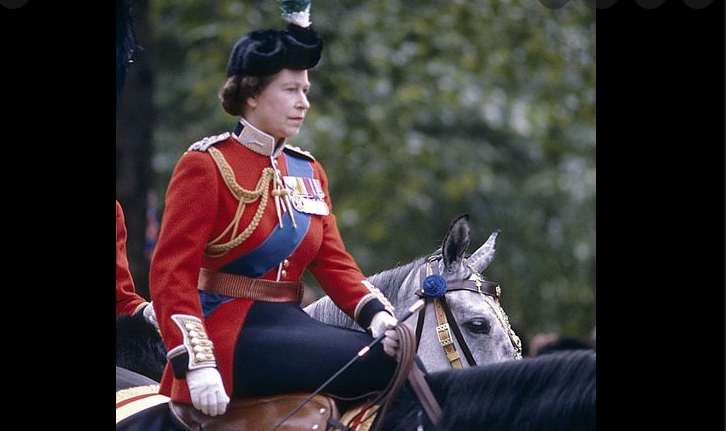ON TARGET
The death of Queen Elizabeth II at the age of 96 after 70 years as the Commonwealth’s reigning monarch was certainly not an unexpected shock. Nobody can live forever.
However much her eventual demise may have been anticipated, the reality of her passing makes one realize just how deeply the Queen was woven into Canadian culture. For most of us, Elizabeth II has been the only monarch we have ever known.
Through all of the societal changes and political upheaval over the past seven decades, she served as a singular symbol of continuity.
Prime Ministers and Governor-Generals came and went, but our head of state remained constant.
As Elizabeth retained her popularity, Canadians by and large took it for granted that the Queen of Canada was in fact a British monarch.
It had been that way prior to and beyond confederation so the attitude became ‘well if it ain’t broke, don’t fit it.’
We simply accepted the fact that the Queen’s image adorned our currency and our postage stamps. For the military, Royal affiliation runs deep and is a huge part of our national martial tradition.
Rightfully so, Canada will mourn the loss of our long-reigning Queen. However, the pain of Elizabeth’s passing will not be felt evenly across Canada’s diverse multi-cultural divide nor across the generational gaps.
Over the past 70 years, Canada had steadily emerged from its roots as a British colony.
That said, while many will mourn the death of the Queen, there is less than luke warm willingness to accept Prince Charles as Canada’s new King.
Nearly 67 per cent of Canadians are disapproving of Charles, and 76 per cent would disapprove of Camilla being named the Royal Consort.
In a March 2022 poll by Research Company, only 21 per cent of Canadians supported a continued constitutional monarchy, while 49 per cent of survey respondents preferred an elected head of state.
During this period of mourning leading up to the Royal funeral and Charles’ ascension ceremony, perhaps it is time for Canada to seriously consider what sort of nation we want to be, moving into this post-Elizabeth era.
Before our mint starts rolling out coins with King Charles’ image on the reverse, perhaps the Trudeau Liberals could conduct a referendum on whether we should simply stick to the old formula “the Queen is dead. Long live the King.”
Now before I get a backlash from those accusing me of being some sort of anti-monarchist, I wish to clarify that I had nothing but respect and admiration for Queen Elizabeth II.
As an impressionable seven-year old schoolboy living in London in 1968, I had the occasion to witness Queen Elizabeth’s trooping-of-the-colours in honour of her birthday.
This ceremony involved thousands of British Guardsmen in their bearskin hats and scarlet tunics, along with columns of Household cavalry troopers resplendent in their shining breast-plates.
I am fairly certain it was that experience which convinced me to include soldiering among my list of lifelong ambitions.
When I did enlist in the Canadian Army in 1982, it was to Queen Elizabeth’s II that I took my oath of loyalty.
I’m not sure that Canada is ready to become a Republic or to begin electing a head-of-state. However, this historic juncture should spark debate about who we want to be as Canadians in the future.
The unpopularity of Charles and Camilla should make this an easy point of discussion.
For the Canadian military, this might provide the catalyst to retire the unit names and traditions associated with the Royal family and Canada’s colonial past.
This might sound like blasphemy to our historians and monarchists, but it might make things less confusing for average civilians wishing to enlist.
One example would be The Princess Louise Fusiliers – a storied reserve infantry Regiment in Halifax. The Princess is long dead and no Canadian soldier has fired a fusil (a type of musket) in over one hundred years.
Canada’s armoured units are all still named after cavalry regiments, yet no Canadian has ridden into battle since 1918.
We still call them the Royal Canadian Horse Artillery, despite them becoming mechanized prior to the Second World War.
New, numbered units could still carry the battle honours of all these fine regiments, but the new monikers could at least reflect the modern day role that they currently perform.
Rest in Peace Queen Elizabeth II. Long did you indeed reign over us.


